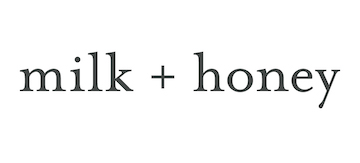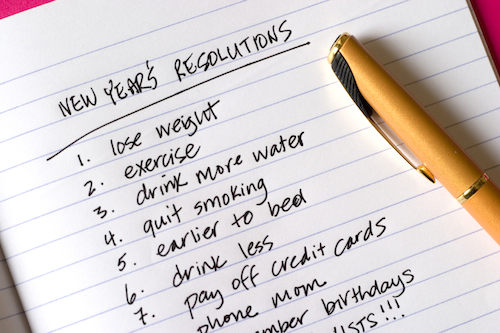Written by guest editor and milk + honey licensed massage therapist, Matt W.
Hi everyone. I wanted to check in and see how those New Year Resolutions were coming along.
I know, New Year Resolutions were so three months ago, but if life got in the way, and we didn’t follow through, we may just forget that we wanted something different for ourselves in the first place. Don’t wilt if your “New Me” hasn’t completely hatched yet. Often we begin things without realizing there’s also a middle and an end to them. These things take time, about three weeks according to some, or a life time according to others.
Changing often requires a lot of hard work, faith, and support. In the beginning, it can be difficult. In the end, it will ideally be second nature. Yet we are constantly changing in between those two poles. We can change what we habitually do, and by doing so, we can change, at the very least, our experience of ourselves. There’s some science behind this for sure, and a lot of it is very exciting.
As the mechanisms for brain change become better understood, the implications seem to grow. The enormous generalization I would like to make here is that the things you do in your daily life change you. I would add that the way you do things in your daily life also changes you. We can all take advantage of the brain’s adaptability in creating new habits by, well, doing new things. Every activity you undertake affects the physiology of your brain, the neural networks, and the body. The more you do a thing, the easier it is to do it. This goes for habits of mental action and feelings as well as for physical action.
The double edged sword inherent to the brain’s nature for change and engraining will conjure arguments for free will, and this is where you’ll find the best results. Frustration and one’s ability to tolerate frustration seems to play a key roll. Something about just barely succeeding (or failing) sends all kinds of urgency cues to your brain that you really want to improve your skill, or your effort, or your will power right here specifically.
Weightlifting provides the obvious analogy whereby the weight you almost cannot lift is the very weight that will increase your strength the most. You can fine tune and take advantage of other components of the equation to get the most out of your efforts. Collectives of individuals striving for the same excellence, expert coaching, goal affirming environmental cues all contribute to this phenomenon. I find it interesting that, under the right circumstances, you can change your habits of thoughts and feelings as well.
If you have a strong sense concerning what you want to change, and why, you can get some great advice on classic goal setting and accomplishment. You can change your basic behavior and there are some great tools to help you with that. Take advantage of a service like HabitForge or simply follow the wholesome and common sense advice available regarding goal setting.
Humans are complex, no doubt, and this brings me to the paradox of self-initiated change. We are who we are. Not liking who we are can provide enormous motivation for change, but ultimately provides your inner saboteur its greatest monkey wrench. It is what Buddhist nun Pema Chodron describes as “self-aggression.” We all have pieces of ourselves we’d rather not see, let alone show to others, and yet these are the very aspects of our being that require the most love. Change that ignores this, or skips over this step, will only provide incomplete results.
Working with this habit, the habit of seeing oneself as not good enough, or the habit of seeing success and failure in absolute terms, can be pretty interesting. Working in this way requires a new habit, and that habit is compassion, for yourself and others. So you didn’t make it to the gym today, and aren’t going to. Maybe tonight you give yourself some love in a different way, and support yourself for going back tomorrow. Cut yourself some slack.
Now, you have a couple of options. You can agree to forget, or agree to remember that you made your resolutions. Should you agree to remember, then you can notice where you fail. You can be gentle with yourself when you do. You can gently but firmly pull yourself back up, and put yourself back on that horse. Good luck, and enjoy the rest of 2014.




